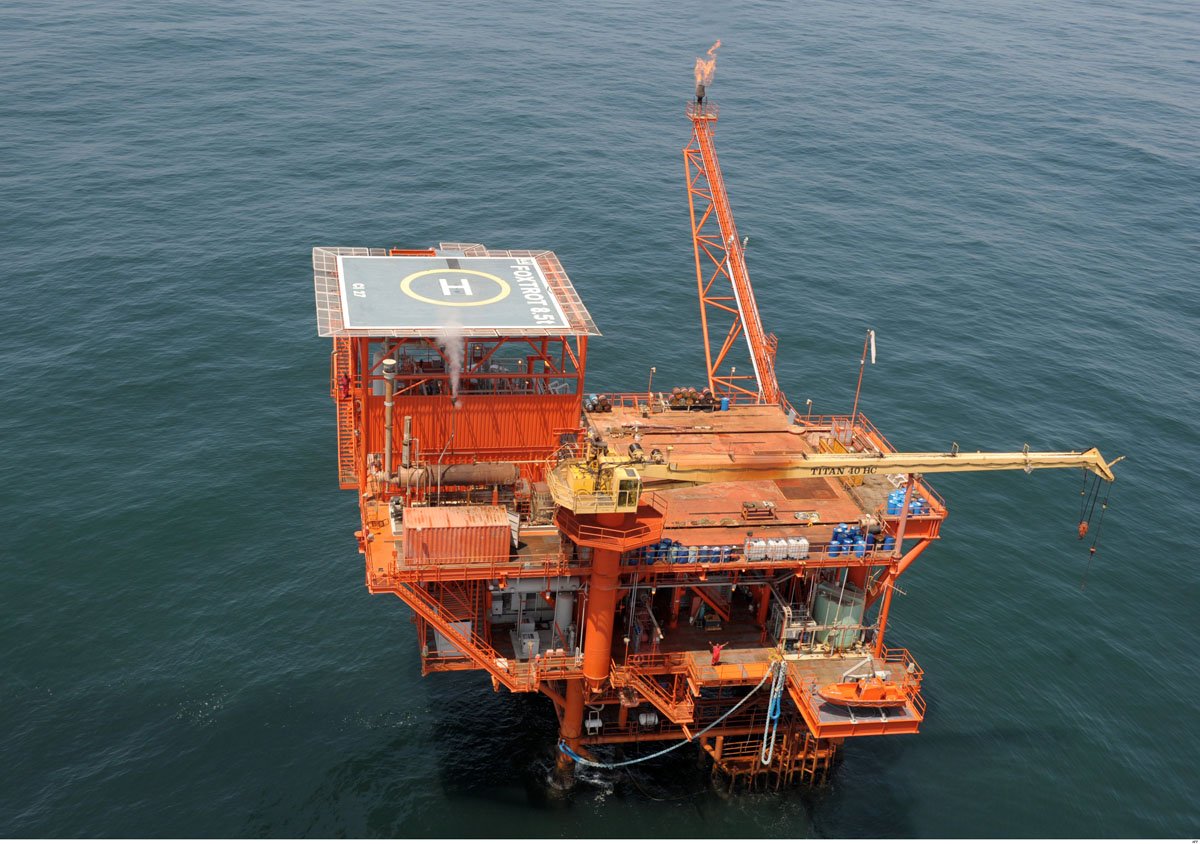
Offshore drilling is not for the faint-hearted. The next deep-sea well to be drilled in Pakistani waters will cost around $150 million and work on it starts in the backdrop of successive failures. Yet experts say it is a risk worth taking.
Pakistan has a coastline spread over 1,990 km and sub-divided into Indus and Makran deltas.
The latest venture of Pakistan Petroleum Limited (PPL) in partnership with a foreign firm is focused on Block G of Indus Delta. In total, 17 offshore wells have been drilled so far.
Since Sun Oil drilled the first well in the Indus Delta in the early 1960s, there have been 12 attempts to find hydrocarbon reserves in the Indus without any success.

The last well Shark-1 was drilled by PPL and ENI in 2010. Vantage’s rig Aquamarine Driller bored a hole to a depth of 3,500 metres below the seabed. The operations were wrapped up after gas flows were found to be commercially unfeasible.
Before that PPL had also tried to find oil and gas reserves 200km southwest of Karachi in Block E. Shell, another multinational, was the operator of that well called Anne-X. It was also a failure.
“But we have learnt something new with each of those failures,” said a senior petroleum industry official. “Indus Delta remains the least explored of the deltas in the world. We need to keep trying if we want to find something.”

The proposed well will be drilled to the depth of between 2,500 and 3,000 metres below the seabed. This does not include the depth of 2,200 metres from the sea surface to seabed.
Indus Delta has many similarities with other oil and gas producing deltas like Mahakam (Indonesia), Niger (Nigeria) and Nile (Egypt) in terms of its age, sediment thickness, tectonic style and rock properties.
It is the last unexplored offshore place in the world. Experts say it is the second largest delta in the world after the Amazon, formed by continuous flow of water from the Himalayas, Hindukash and Karakoram mountain ranges.
Pakistan has had bad luck in finding substantial oil and gas reserves on its onshore fields for many years. Most of the prospective pieces of land in Sindh and Punjab have already been explored.
Attacks by militants in Balochistan and ongoing war against terrorism in Khyber-Pakhtunkhwa have made it difficult to carry out exploration there despite a crippling energy shortage caused mainly by depletion of gas reserves.
Published in The Express Tribune, June 29th, 2013.
Like Business on Facebook, follow @TribuneBiz on Twitter to stay informed and join in the conversation.
COMMENTS (4)
Comments are moderated and generally will be posted if they are on-topic and not abusive.
For more information, please see our Comments FAQ
1732503274-0/Untitled-design-(43)1732503274-0-405x300.webp)
1732501636-0/Untitled-design-(42)1732501636-0-165x106.webp)

1732498967-0/Outer-Banks--(1)1732498967-0-165x106.webp)
1732086766-0/BeFunky-collage-(74)1732086766-0-165x106.webp)
1732486769-0/image-(8)1732486769-0-270x192.webp)











I would simply say that cheese is there and mice cannot resist it. Try try again is the key and InA soon we will hit the jackpot. It will be a game changer discovery for sure which is badly needed by our beloved country. God Bless Pakistan.
Well it is good to hear that PPL is working day and night to explore more and more oil and gas whether it is onshore or offshore, keep it up other companies should also come with new plans
It is good to hear the news of exploration in deep sea. May Allah give the success.Hope UEP will also commence it's venture very soon.
Great News.. UEP Pakistan is also planning for the same. Am optimist about the possible offshore reserves in this region which would definitely benefit Pakistan's economy.